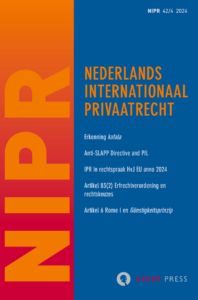Views
Which Law Governs Subject Matter Arbitrability in International Commercial Disputes?
Written by Kamakshi Puri[1]
Arbitrability is a manifestation of public policy of a state. Each state under its national laws is empowered to restrict or limit the matters that can be referred to and resolved by arbitration. There is no international consensus on the matters that are arbitrable. Arbitrability is therefore one of the issues where contractual and jurisdictional natures of international commercial arbitration meet head on.
Choice of law rules and statutory interpretation in the Ruby Princess Case in Australia
Written by Seung Chan Rhee and Alan Zheng
Suppose a company sells tickets for cruises to/from Australia. The passengers hail from Australia, and other countries. The contracts contain an exclusive foreign jurisdiction clause nominating a non-Australian jurisdiction. The company is incorporated in Bermuda. Cruises are only temporarily in Australian territorial waters.
German Federal Court of Justice: Article 26 Brussels Ia Regulation Applies to Non-EU Defendants
By Moses Wiepen, Legal Trainee at the Higher Regional Court of Hamm, Germany
In its decision of 21 July 2023 (V ZR 112/22), the German Federal Court of Justice confirmed that Art. 26 Brussels Ia Regulation applies regardless of the defendant’s domicile. The case in question involved an art collector filing suit against a Canadian trust that manages the estate of a Jew who was persecuted by the German Nazi regime. The defendant published a wanted notice in an online Lost Art database for a painting that the plaintiff bought in 1999. The plaintiff considers this as a violation of his property right.
News
Dutch Journal of PIL (NIPR) – issue 2024/4
The latest issue of the Dutch Journal on Private International Law (NIPR) has been published.
EDITORIAL
M.H. ten Wolde / p. 626-628
ARTICLES
A. Mens, De kwalificatie en de rechtsgevolgen van de erkenning van een kafala op grond van het Nederlandse internationaal privaatrecht/ p. 628-649
Abstract
This article focuses on the qualification and legal consequences of recognising a kafala under Dutch private international law. A kafala is a child protection measure under Islamic law, which entails an obligation to care for, protect, raise, and support a child, but without any implications for lineage or inheritance rights. The main conclusion is that a kafala generally constitutes both a guardianship and a maintenance decision. Consequently, the recognition of a foreign kafala in the Netherlands essentially entails the recognition of both the guardian’s (kafil) authority over the child (makful) and the recognition of the guardian’s maintenance obligation towards the child.
B. van Houtert, The Anti-SLAPP Directive in the context of EU and Dutch private international law: improvements and (remaining) challenges to protect SLAPP targets / p. 651-673
Abstract
Read more
“The Law(s) of the Arbitration Agreement” by Professor Ron Brand
A recent study by the Law Commission of England and Wales has resulted in proposed amendments to the Arbitration Act 1996 that include a default rule that an arbitration agreement will be governed by the law of England and Wales if the arbitration is seated in that territory. Given the importance of London as an arbitration center, this has implications for many international commercial contracts.
In his new article, Professor Ron Brand from the University of Pittsburgh School of Law challenges the premise behind the proposed amendment that there is a single “law of the arbitration agreement.” Instead, he demonstrates that there are multiple laws applicable to an arbitration agreement. He explains this multiplicity of applicable laws by considering the possible grounds for challenge of jurisdiction of an arbitral tribunal based on the arbitration agreement. Such an analysis demonstrates that very different laws may apply to questions of the existence, formal validity, substantive validity, scope, and exclusivity of an arbitration agreement. He reviews these issues in the broader context of choice of forum clauses generally, including both arbitration and choice of court agreements, and then considers a hypothetical international commercial transaction in which questions might arise about the first four of these five jurisdictional questions – demonstrating both the problems with the idea of a single “law of the arbitration agreement,” as well as the practical impact and importance of well-drafted choice of forum agreements, including provisions on choice of law. Although prompted by the proposed change in English law, this discussion has implications for the law in every jurisdiction regarding agreements to arbitrate, indicating that both transaction planners and dispute resolution lawyers need to be cognizant of the laws applicable to arbitration and choice of court agreements.
The article is available here.
Choice of Law in the American Courts in 2024
The thirty-eighth annual survey on choice of law in the American courts is now available on SSRN. The survey covers significant cases decided in 2024 on choice of law, party autonomy, extraterritoriality, international human rights, foreign sovereign immunity, adjudicative jurisdiction, and the recognition and enforcement of foreign judgments.
This annual survey was admirably maintained by Symeon Symeonides for three decades. The present authors are pleased to have extended this tradition.


